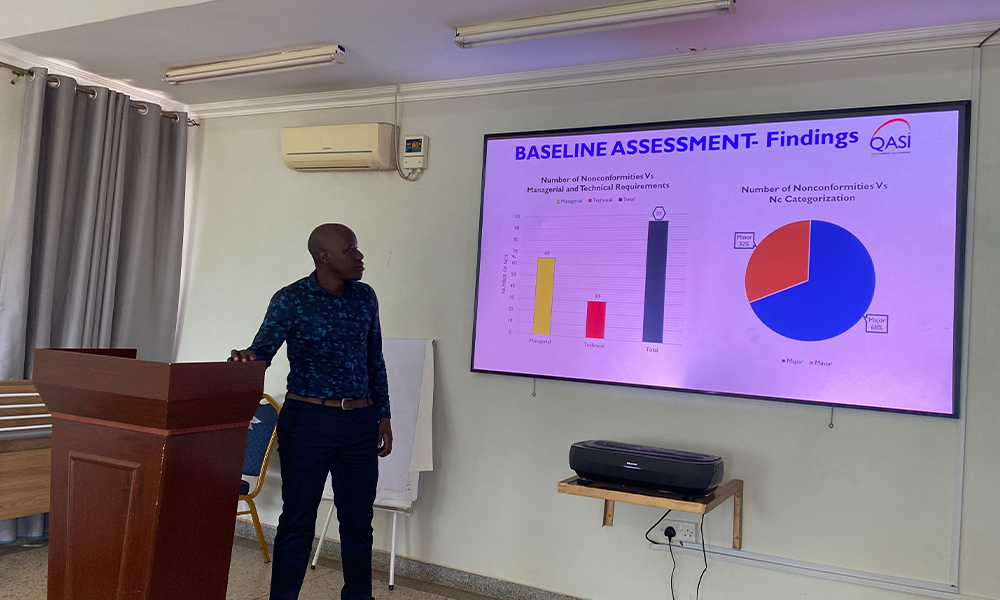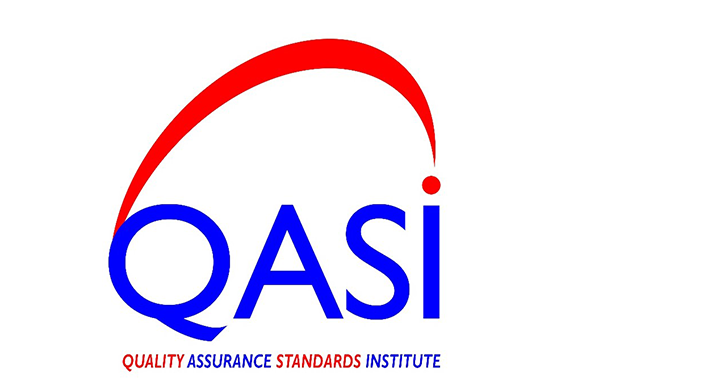Oil and Gas Management

The international standard ISO/TS 29001 is the outcome of a collaboration between ISO and the international oil and gas sector, with a primary focus on the oil and gas supply chain. It outlines the Quality Management System requirements for the planning, establishment, production, and implementation of petroleum, petrochemical, and natural gas industry products and services.
Furthermore, ISO/TS 29001 is based on ISO 9001, which includes service provider criteria for mistake prevention, variation reduction, and waste management. These requirements were stated separately to guarantee clarity and readability. This standard is applicable to all companies in the oil and gas industry because it was created to ensure quality and improvement in this industry.
ISO/TS 29001 is a Technical Specification developed by the International Organization for Standardization (ISO) in collaboration with the International Electrotechnical Commission (IEC). It provides a set of requirements for a quality management system (QMS) specifically designed for the petroleum, petrochemical, and related industries.
Given that the oil and gas business is one of the most vulnerable to disasters, quality management methods and qualified people are critical in this industry. Serious harm to humans and the environment can result from improperly handled hazardous liquids and gases. As a result, a high level of operational reliability is critical in this business to ensure safety and smooth operations. This is also advantageous for the firm because it will be recognized for providing the best products/services in terms of quality and safety. Being ISO/TS 29001 certified is an efficient way to accomplish this, and with your knowledge, you will ensure excellence to stakeholders and increase the organization’s reputation. our knowledge and expertise on this standard, while enabling you to maximize your earning potential.
For Individuals
- Enhanced career prospects: Demonstrate your expertise in quality management within the oil and gas industry, increasing your value to potential employers.
- Improved knowledge and skills: Gain a deep understanding of ISO/TS 29001 requirements and best practices, enabling you to effectively implement and maintain a quality management system.
- Increased earning potential: As a certified ISO/TS 29001 professional, you may be able to command higher salaries and secure more lucrative job opportunities.
- Career advancement: The certification can help you progress in your career by demonstrating your commitment to professional development and industry standards.
For Organizations
- Improved quality management: Implement a robust quality management system tailored to the specific needs of the oil and gas industry.
- Enhanced customer satisfaction: Deliver products and services that consistently meet or exceed customer expectations, leading to increased customer loyalty and retention.
- Reduced costs: Identify and eliminate waste and inefficiencies, leading to cost savings and improved profitability.
- Enhanced operational efficiency: Streamline processes, improve productivity, and reduce downtime.
- Risk mitigation: Identify and manage potential risks associated with quality and safety, reducing the likelihood of accidents and incidents.
- Regulatory compliance: Ensure compliance with relevant industry standards and regulations, avoiding fines and penalties.
- Improved reputation: Demonstrate a commitment to quality and safety, enhancing your organization’s reputation in the industry.
By attending an ISO/TS 29001 training course, you can gain the knowledge and skills necessary to implement a successful quality management system and reap the benefits for both yourself and your organization.
QASI is excited to support you, contact us to begin with the first step!
Explore our courses and find the perfect fit for your needs.
- ISO/TS 29001 Implementers’ course
- ISO/TS 29001 Auditors’ course based on ISO 19011
- ISO/TS 29001and ISO 31000 based Risk Management course
The ISO/TS 29001 training course is designed for individuals working in the petroleum, petrochemical, and related industries, including:
- Quality managers: Responsible for overseeing and implementing quality management systems within organizations.
- Quality engineers: Involved in designing, implementing, and maintaining quality control processes.
- Process engineers: Responsible for optimizing and improving production processes.
- Safety engineers: Concerned with identifying and mitigating safety risks within the workplace.
- Supply chain managers: Responsible for managing the flow of goods and services within the organization.
- Procurement professionals: Involved in sourcing and purchasing materials and equipment.
- Operations managers: Responsible for overseeing day-to-day operations and ensuring efficiency.
- Consultants: Providing advice and guidance on quality management systems to organizations in the industry.
Anyone working in the petroleum, petrochemical, or related industries who wants to improve their organization’s quality management practices and enhance their career prospects can benefit from attending an ISO/TS 29001 training course.
Training Days for each course: 5
Exam Duration: 1 hour
Retake Exam: Yes
For additional information, please contact info@qasi.co.ug
ISO/TS 29001 Implementers’ course
ABOUT THIS COURSE
Course Description
- The ISO/TS 29001 Implementers’ course is designed to equip individuals with the knowledge and skills necessary to establish, implement, maintain, and continually improve a quality management system (QMS) that conforms to the ISO/TS 29001 standard. ISO/TS 29001 is a technical specification that provides requirements for a QMS specifically tailored to the petroleum, petrochemical, and related industries.
Key topics covered in the course include:
- Understanding ISO/TS 29001: A comprehensive overview of the ISO/TS 29001 standard, including its scope, objectives, and key requirements.
- QMS implementation: Step-by-step guidance on establishing and implementing a QMS that meets the requirements of ISO/TS 29001.
- Industry-specific requirements: Addressing the unique needs and challenges of the petroleum, petrochemical, and related industries.
Risk management: Identifying, assessing, and mitigating risks associated with quality and safety in these industries.
Course objectives:
Participants will be able to:
- Establish and implement a QMS that conforms to ISO/TS 29001.
- Conduct internal audits of the QMS.
- Identify and address quality and safety risks.
- Continuously improve the QMS to enhance organizational performance.
Certification
Participants get certificate of successful course completion awarded at the end of the training.
Minimum requirements for certification will include: 95% attendance of the sessions and at least 70% in the post-test. Participants who fail to meet the criteria above get a certificate of participation.
Resource Material
- ISO/TS 29001
Who Should Attend:
Participants include:
- Quality managers
- Operations managers
- Safety engineers
- Supply chain managers
- Consultants
Course Prerequisites
- Quality management principles: A general understanding of quality management concepts, such as customer focus, process approach, continuous improvement, and evidence-based decision-making.
- Petroleum and petrochemical industries: Familiarity with the specific requirements and challenges of the petroleum, petrochemical, and related industries.
- Risk management: Knowledge of basic risk management principles and techniques.
- Supply chain management: Understanding of supply chain management concepts and practices.
ISO/TS 29001 Auditors’ course based on ISO 19011
ABOUT THIS COURSE
Course Description
- The ISO/TS 29001 Auditors’ course, based on the ISO 19011 standard, is designed to equip individuals with the knowledge, skills, and techniques necessary to conduct effective audits of quality management systems (QMS) within organizations operating in the petroleum, petrochemical, and related industries. This course provides a comprehensive understanding of ISO/TS 29001 requirements and auditing methodologies.
Key topics covered in the course include:
- ISO/TS 29001 requirements: A detailed understanding of the specific requirements for QMS in the petroleum, petrochemical, and related industries.
- ISO 19011 auditing principles: The fundamental principles and techniques for conducting effective audits, as outlined in the ISO 19011 standard.
- Audit planning and preparation: Techniques for planning and preparing for audits of QMS in the petroleum, petrochemical, and related industries, including developing an audit plan, selecting audit team members, and gathering necessary documentation.
Audit techniques: Effective auditing techniques for assessing the implementation and effectiveness of QMS in the petroleum, petrochemical, and related industries.
Course objectives:
Participants will be able to:
- Conduct effective audits of QMS in the petroleum, petrochemical, and related industries.
- Identify nonconformities and recommend corrective actions.
- Evaluate the effectiveness of QMS in the petroleum, petrochemical, and related industries.
- Contribute to the continuous improvement of QMS within organizations operating in these sectors.
Certification
Participants get certificate of successful course completion awarded at the end of the training.
Minimum requirements for certification will include: 95% attendance of the sessions and at least 70% in the post-test. Participants who fail to meet the criteria above get a certificate of participation.
Resource Material
- ISO/TS 29001
- ISO 19011
Who Should Attend:
- Internal auditors
- External auditors
- Quality managers
- Operations managers
- Safety engineers
- Supply chain managers
Participants include:
Consultants
Course Prerequisites
ISO/TS 29001: A general knowledge of the key principles, clauses, and requirements of the ISO/TS 29001 standard for quality management systems in the petroleum, petrochemical, and related industries.
ISO/TS 29001and ISO 31000 based Risk Management course
ABOUT THIS COURSE
Course Description
- The ISO/TS 29001 and ISO 31000-Based Risk Management course is designed to equip individuals with the knowledge and skills necessary to effectively manage risks within the petroleum, petrochemical, and related industries. This course combines the requirements of ISO/TS 29001 (a technical specification for QMS in the petroleum, petrochemical, and related industries) and ISO 31000 (a standard for risk management)
Key topics covered in the course include
- ISO/TS 29001 requirements: Understanding the key principles, clauses, and requirements of ISO/TS 29001 for QMS in the petroleum, petrochemical, and related industries.
- ISO 31000 requirements: Understanding the key principles, clauses, and requirements of ISO 31000 for risk management.
Course objectives:
Participants will be able to:
- Effectively identify and manage risks within the petroleum, petrochemical, and related industries.
- Develop and implement risk management strategies tailored to these sectors.
- Communicate risk information effectively to stakeholders.
- Contribute to the continuous improvement of QMS in the petroleum, petrochemical, and related industries
Certification
Participants get certificate of successful course completion awarded at the end of the training.
Minimum requirements for certification will include: 95% attendance of the sessions and at least 70% in the post-test. Participants who fail to meet the criteria above get a certificate of participation.
Resource Material
- ISO 22000
- ISO 31000
Who Should Attend:
Participants include:
- Risk managers
- Quality managers
- Operations managers
- Safety engineers
- Supply chain managers
- Consultants
Course Prerequisites
- ISO/TS 29001: A general knowledge of the key principles, clauses, and requirements of the ISO/TS 29001 standard for quality management systems in the petroleum, petrochemical, and related industries.
- ISO 31000:Familiarity with the principles and techniques for risk management as outlined in the ISO 31000 standard.
Who should attend?
The ISO/TS 29001 training course is designed for individuals working in the petroleum, petrochemical, and related industries, including:
- Quality managers: Responsible for overseeing and implementing quality management systems within organizations.
- Quality engineers: Involved in designing, implementing, and maintaining quality control processes.
- Process engineers: Responsible for optimizing and improving production processes.
- Safety engineers: Concerned with identifying and mitigating safety risks within the workplace.
- Supply chain managers: Responsible for managing the flow of goods and services within the organization.
- Procurement professionals: Involved in sourcing and purchasing materials and equipment.
- Operations managers: Responsible for overseeing day-to-day operations and ensuring efficiency
- Consultants: Providing advice and guidance on quality management systems to organizations in the industry.
Anyone working in the petroleum, petrochemical, or related industries who wants to improve their organization’s quality management practices and enhance their career prospects can benefit from attending an ISO/TS 29001 training course.
Other Information
Training Days for each course: 5
Exam Duration: 1 hour
Retake Exam: Yes
For additional information, please contact info@qasi.co.ug







